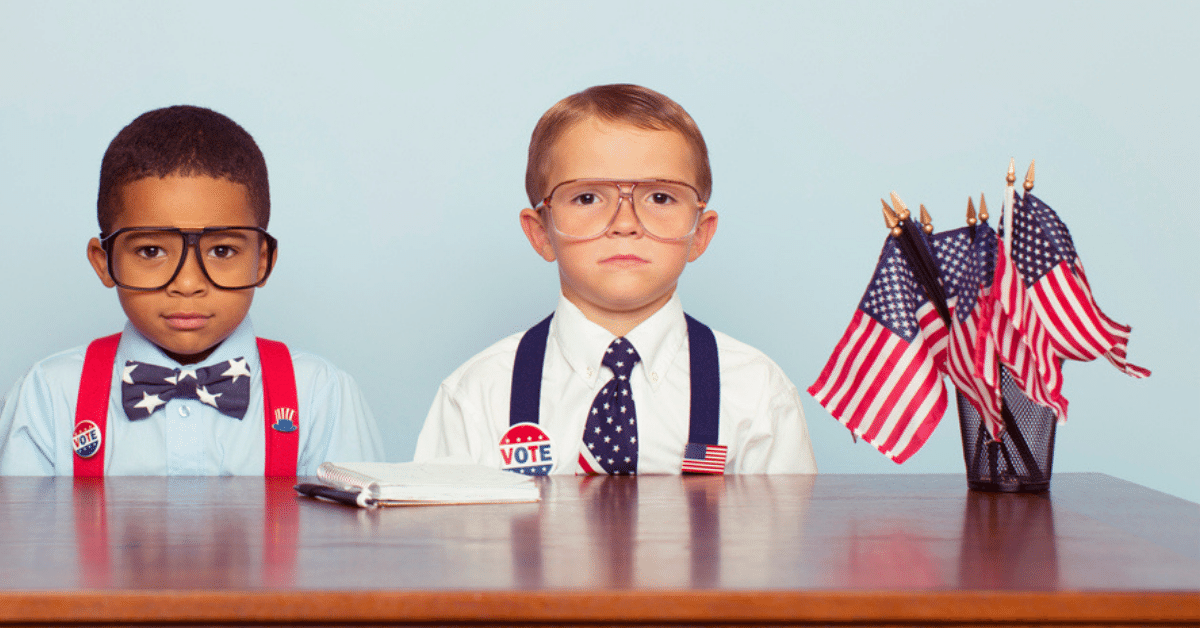How to Explain US Politics to Your Child

Politics is often seen as a grown-ups’ business and it can be hard to know how to talk about politics with your kids. But it’s important for them to learn about government and politics as early as possible.
Kids are naturally interested in social issues. They notice when someone is holding up a sign for charity or when they see a homeless person on the street.
Talk About Current Events
Even though tumultuous current events seem to get all the attention, there are many positive current events. For example, if your child is concerned about the environment, you might help them understand that it’s important to vote for candidates who support environmental protection. You can also discuss how to take action on the local level, like recycling.
As children grow older, they begin to understand more concrete political details. But abstract concepts, such as the difference between parties and ideology, can remain elusive. This can lead to fearful misunderstandings.
When talking about politics with kids, try to steer clear of ad hominem attacks. Instead, emphasize that people are different and that politicians have virtues and shortcomings just as we do. Also, encourage them to read a wide range of articles and viewpoints so that they can form their own opinions, not just listen to what they hear on the news or from family members who may have different political views than they do.
Talk About Ads
Politics is a topic that often seems out of reach for kids. But children are naturally interested in the world around them, and a keen eye will be drawn to out-of-the-ordinary things like veterans standing at the supermarket with poppies or people holding signs asking for donations. It’s a good idea to cultivate their interest by discussing these issues with them, especially when they happen in your community.
This is also an excellent time to talk about the importance of voting with children. Ask them if they’ve ever voted for anything at school and then explain how the voting process works. Use books and websites like PBS’ You Choose series to help children understand that politics is how we make decisions as a community and country.
It’s also important to talk about how negative political ads work, including the use of visuals and music to evoke emotions in viewers. It’s also helpful to explain how media outlets tend to promote certain views and information over others.
Talk About Voting
Voting is a big deal in the US and it’s important to teach kids that voting is a privilege. Explain how a person makes their voice heard in a democracy and that everyone has a role to play, starting with local workers like firefighters or garbage collectors all the way up to national leaders.
Explain how there is a popular vote, which is the count of every individual’s vote, and an electoral college that represents each state and votes for a presidential candidate. Point out that a candidate needs to receive 270 electoral votes in order to win and become president.
Use a variety of resources, from reputable blogs to websites to books, to help your children understand complex political topics and the history behind them. Don’t shy away from discussing issues that are negative or controversial, but always remember to steer your conversation towards solutions. That’s how you get kids to care. And that’s how you can make them into engaged citizens as adults.
Talk About Politics in General
When kids are ready to discuss politics, it’s important for parents to guide them through a discussion without bias. They will likely learn about our government and politics from their friends, teachers and the media, so it’s up to you to introduce them to the facts so they can form their own opinions about culture, community and world issues.
As your children get older, they’ll probably want to learn more about the ins and outs of how a legislature works, the different political parties and larger concepts like democracy. But before that happens, make sure your child has a way to stay current on the topics they’re interested in by showing them how you keep up with news and how you find information online or on television.
It’s also a good idea to talk to your children about how you can disagree with people and still be friends. The more your children understand that everyone’s opinion matters and that not all views are right or wrong, the better they’ll be able to form their own opinions and respect those of others.